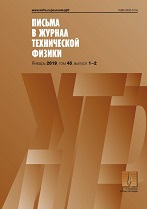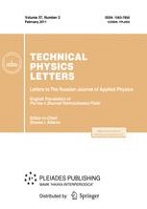|
This article is cited in 2 scientific papers (total in 2 papers)
The use of pulsed laser annealing to form ohmic Mo/Ti contacts to diamond
M. N. Drozdova, E. A. Arkhipovaa, Yu. N. Drozdova, S. A. Kraeva, V. I. Shashkina, A. E. Parafina, M. A. Lobaevb, A. L. Vikharevb, A. M. Gorbachevb, D. B. Radishevb, V. A. Isaevb, S. A. Bogdanovb
a Institute for Physics of Microstructures, Russian Academy of Sciences, Nizhnii Novgorod
b Institute of Applied Physics, Russian Academy of Sciences, Nizhny Novgorod
Abstract:
The effect of pulsed laser annealing on the formation of ohmic Mo/Ti contacts to diamond is studied. Using the method of secondary-ion mass spectrometry, it was shown that laser annealing of the contacts leads to effective diffusion of carbon atoms into the titanium layer and the formation of titanium carbide in the transition region with a diamond with a thickness of 15–20 nm. Rapid thermal annealing of the same contact system is accompanied by a sharp increase in the oxygen content in the titanium layer and in the transition layer with diamond and the formation of titanium oxide. In this case, the titanium carbide phase is not formed in the Ti-C transition layer. It was also shown that, in the used laser annealing mode, graphitization of the contact layer of diamond does not occur, which could drastically reduce the mechanical strength and adhesion of the contacts.
Keywords:
diamond, ohmic contacts, annealing, carbides, oxides, graphitization.
Received: 25.02.2020
Revised: 10.03.2020
Accepted: 12.03.2020
Citation:
M. N. Drozdov, E. A. Arkhipova, Yu. N. Drozdov, S. A. Kraev, V. I. Shashkin, A. E. Parafin, M. A. Lobaev, A. L. Vikharev, A. M. Gorbachev, D. B. Radishev, V. A. Isaev, S. A. Bogdanov, “The use of pulsed laser annealing to form ohmic Mo/Ti contacts to diamond”, Pisma v Zhurnal Tekhnicheskoi Fiziki, 46:11 (2020), 34–38; Tech. Phys. Lett., 46:6 (2020), 551–555
Linking options:
https://www.mathnet.ru/eng/pjtf5090 https://www.mathnet.ru/eng/pjtf/v46/i11/p34
|


| Statistics & downloads: |
| Abstract page: | 65 | | Full-text PDF : | 37 |
|





 Contact us:
Contact us: Terms of Use
Terms of Use
 Registration to the website
Registration to the website Logotypes
Logotypes








 Citation in format
Citation in format 
